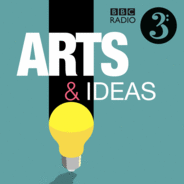
Kultur & GesellschaftTalk
Arts & Ideas Folgen
Leading thinkers discuss the ideas shaping our lives – looking back at the news and making links between past and present. Broadcast as Free Thinking, Fridays at 9pm on BBC Radio 4. Presented by Matthew Sweet, Shahidha Bari and Anne McElvoy.
Folgen von Arts & Ideas
phonostar hat keine Informationen zu diesem Inhalt.
Gehe auf die Website des Senders um weitere Informationen zu erhalten.